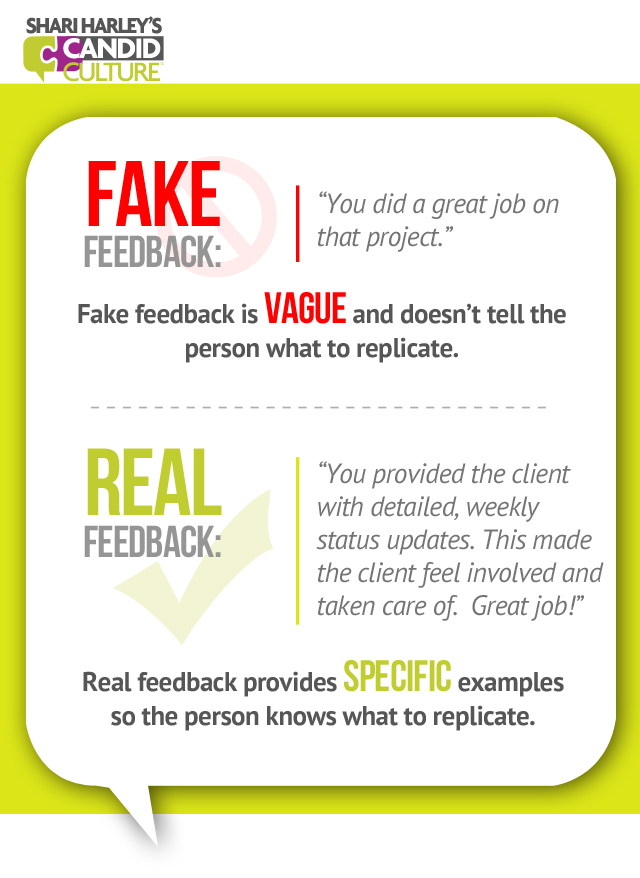How to Give Feedback to a Speaker?
To give feedback to a speaker, be concise and specific, focusing on their strengths and areas for improvement. Constructive feedback helps them grow and develop their skills.
When providing feedback to a speaker, it is crucial to be concise, specific, and to the point. Whether you’re evaluating a speaker’s performance in a presentation, speech, or public event, effective feedback is essential for their growth and improvement. Constructive criticism enables speakers to identify their strengths and weaknesses, allowing them to refine their communication skills.
We will discuss some guidelines for giving feedback to a speaker and provide practical tips to deliver feedback that is helpful and encouraging. By following these tips, both parties can benefit from a constructive feedback exchange, fostering personal and professional development for the speaker.
Importance Of Giving Feedback
This is an example of how you can structure your response using HTML syntax. Please note that the content itself is generated by OpenAI and may not necessarily be accurate or factual.Providing constructive feedback to a speaker is an essential element to help them grow and improve their communication skills. Letting a speaker know what they did well and where they can enhance their delivery not only benefits them but also encourages a positive learning environment. There are several reasons why giving feedback is crucial:
Enhances Speaker’s Growth
Feedback plays a significant role in fostering the growth of a speaker. When speakers receive feedback, they gain valuable insights into their strengths and areas that need improvement. This feedback allows them to refine their communication techniques, enhance their confidence, and evolve as skilled presenters.
Here are some ways feedback enhances a speaker’s growth:
- Identifies areas of improvement
- Encourages self-reflection
- Promotes continuous learning
- Boosts confidence
Improves Communication Skills
Constructive feedback is a powerful tool for improving communication skills. By providing specific and actionable feedback, you can assist speakers in refining their content, delivery, and overall message. This can result in more engaging presentations, improved clarity, and enhanced persuasion abilities.
Here are some key ways feedback contributes to improving communication skills:
- Refining verbal and non-verbal communication
- Enhancing storytelling abilities
- Developing effective presentation structure
- Improving audience engagement techniques
In conclusion, providing effective feedback to a speaker not only enhances their growth but also improves their communication skills. By identifying areas of improvement and fostering continuous learning, speakers can refine their techniques and become more confident presenters. Constructive feedback serves as a catalyst for their development and contributes to the overall success of communication. So, don’t hesitate to offer thoughtful and specific feedback to speakers – it can make all the difference in their journey towards becoming exceptional communicators.
Preparing To Give Feedback
In order to provide effective feedback to a speaker, it is important to prepare yourself beforehand. By taking certain steps, you will ensure that your feedback is constructive and valuable. Here are some key factors to consider while preparing to give feedback:
Active Listening
Active listening plays a crucial role in giving feedback to a speaker. By actively engaging with the speaker’s content and delivery, you will be able to provide more accurate and specific feedback. Here are some tips for being an active listener:
- Make eye contact with the speaker
- Focus on the speaker’s verbal and nonverbal cues
- Avoid interrupting or interjecting while the speaker is talking
- Take notes of key points or areas that need improvement
Considering The Speaker’s Goals
When giving feedback to a speaker, it is essential to consider their goals and objectives. Understanding what the speaker wants to achieve will help you tailor your feedback in a way that aligns with their intentions. Here are some ways to consider the speaker’s goals:
- Review the speaker’s stated objectives or purpose
- Pay attention to the topics or themes the speaker emphasized
- Take note of any specific requests the speaker made for feedback
- Consider the audience and context in which the speaker is presenting
By keeping the speaker’s goals in mind, you can provide feedback that is relevant and meaningful to their specific needs.
Providing Constructive Feedback
When giving feedback to a speaker, it is important to be constructive in your approach. By offering specific and observational feedback, you can help the speaker improve their delivery and overall performance. Additionally, maintaining a balanced and objective perspective allows you to provide fair and valuable insights. Here are two key aspects to consider when providing constructive feedback:
Specific And Observational
It is crucial to provide feedback that is specific and observational. Instead of making general statements such as “good job” or “needs improvement”, highlight specific examples from the speaker’s presentation. This helps the speaker understand exactly what aspects of their performance were effective or lacking.
Here are a few ways to offer specific and observational feedback:
- Point out the speaker’s body language and gestures: For example, you can mention that the speaker maintained eye contact with the audience and utilized expressive hand movements, which added to their overall presence and engagement.
- Highlight the speaker’s vocal delivery: Discuss how the speaker’s tone, pace, and volume contributed to the clarity and impact of their message. For instance, you can note that the speaker’s steady and well-modulated voice enhanced the audience’s comprehension and attentiveness.
- Address the speaker’s content and organization: Provide feedback on the structure and coherence of the speaker’s presentation. Mention specific points where the speaker effectively supported their arguments with evidence or where they could improve their transitions between ideas.
Balanced And Objective
Feedback should be balanced and objective in order to be helpful to the speaker. Avoid overly positive or negative language and focus on providing a fair assessment. Constructive feedback offers a mix of positive reinforcement and areas for improvement.
Here are a few tips on maintaining a balanced and objective approach:
- Highlight what worked well: Begin by acknowledging the speaker’s strengths and successes. Mention specific elements of their presentation that resonated with the audience and had a positive impact.
- Identify areas for improvement: While discussing the speaker’s weaknesses, ensure that your feedback is constructive and actionable. Provide suggestions for improvement and offer guidance on how the speaker can enhance their skills and overcome any shortcomings.
- Stay neutral and objective: Avoid personal biases or opinions that could cloud your feedback. Focus on the speaker’s performance and how they can enhance their delivery, rather than making it about personal preferences.
Remember, by providing specific and observational feedback in a balanced and objective manner, you can truly help a speaker grow and develop their public speaking abilities.

Credit: www.greenhouse.com
Delivering Feedback Effectively
When it comes to giving feedback to a speaker, delivering it effectively is crucial. The way feedback is delivered can greatly impact the speaker’s growth and development. In this section, we will discuss two important aspects of delivering feedback effectively – choosing the right time and place, and using appropriate language.
Choosing The Right Time And Place
Timing and environment play a significant role in ensuring that feedback is well-received by the speaker. Here are some factors to consider:
- Privacy: Find a private and comfortable space where the speaker feels safe and secure to receive feedback.
- Post-event: Provide feedback after the speaker has finished their presentation or speech. This allows them to reflect on their performance while the details are still fresh in their mind.
- Avoid distractions: Select a quiet location without any distractions that could interfere with the speaker’s concentration and engagement.
- Respect their schedule: Make sure the chosen time aligns with the speaker’s availability and does not clash with other commitments they may have.
Using Appropriate Language
Using the right language when giving feedback is essential to maintain a positive and constructive atmosphere. Here are some tips:
- Be specific: Provide specific examples and instances where the speaker excelled or areas where improvement is needed. This helps the speaker better understand their strengths and weaknesses.
- Use a balanced approach: Combine praise with constructive criticism to ensure a well-rounded feedback that acknowledges the speaker’s achievements while offering suggestions for enhancement.
- Be respectful: Choose your words carefully and maintain a respectful tone throughout the feedback session. Avoid using harsh or negative language that may discourage the speaker.
- Focus on behaviors: Instead of making personal remarks or judgments, concentrate on the speaker’s behaviors and delivery techniques. This helps to keep the feedback objective and actionable.
- Encourage self-reflection: Prompt the speaker to reflect on their own performance by asking open-ended questions that encourage thoughtful analysis and self-evaluation.
To deliver effective feedback, choosing the right time and place and using appropriate language are essential. By considering these factors, you can provide feedback that motivates and supports the speaker’s growth and development.
Receiving Feedback As A Speaker
As a speaker, receiving feedback can be a valuable opportunity for growth and improvement. Being open and receptive to feedback is crucial in honing your skills and becoming a more effective communicator.
Being Open And Receptive
Embracing feedback allows you to gain insights into your strengths and weaknesses as a speaker. Instead of viewing feedback as criticism, consider it as an invaluable tool for personal and professional development.
When receiving feedback, keep an open mind and acknowledge that there may be areas for improvement. Encouraging constructive criticism fosters a positive learning environment.
Reflecting On Feedback For Improvement
After receiving feedback, take the time to reflect on it. Consider the validity of the feedback and how it aligns with your goals as a speaker.
Create a list of actionable items based on the feedback received. Prioritize the areas that require improvement and incorporate them into your practice sessions.
| Feedback Received | Actionable Item |
|---|---|
| Speak too fast | Practice speaking slowly and clearly |
| Lack of eye contact | Make a conscious effort to maintain eye contact with the audience |
| Unclear organization | Work on structuring the speech in a logical and coherent manner |
Takeaways:
- View feedback as an opportunity for growth
- Be open-minded and receptive
- Consider the validity of the feedback
- Create a list of actionable items
- Prioritize areas for improvement

Credit: www.kenokel.com

Credit: candidculture.com
Frequently Asked Questions On How To Give Feedback To A Speaker?
How Can I Give Constructive Feedback To A Speaker?
To give constructive feedback to a speaker, focus on their strengths and areas for improvement while providing specific examples and actionable suggestions.
What Are Some Effective Ways To Provide Feedback To A Speaker?
Effective ways to provide feedback to a speaker include offering praise, being specific in your observations, using a constructive and respectful tone, and providing actionable recommendations.
Why Is It Important To Give Feedback To A Speaker?
Giving feedback to a speaker is important as it helps them enhance their skills, boosts their confidence, and encourages professional growth. It also contributes to the overall improvement of their presentations.
Conclusion
Providing constructive feedback to a speaker is an essential skill that can greatly impact their growth and development. By following a few key steps, such as being specific and providing examples, focusing on the positives, and offering suggestions for improvement, you can help speakers enhance their communication skills and deliver impactful presentations.
Remember, honesty and empathy are key when giving feedback. Your insights can go a long way in helping speakers excel in their endeavors.

